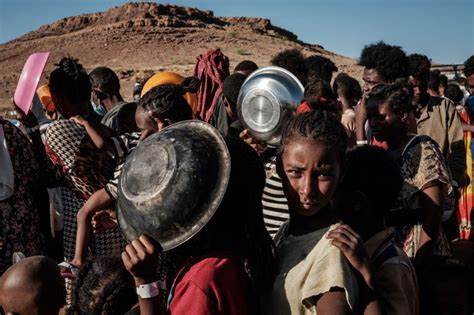Every day, journalists and editors make decisions about which stories to cover. They generally prioritize those that are more sensational or trending in social media feeds, or those taking place closer to their audience. Therefore, many humanitarian crises around the world are overlooked and under-reported.
These so called “forgotten” crises are usually protracted humanitarian crisis situations, which have severe consequences on the affected populations such as death, famine, displacement and homelessness. Often the cause is conflict, although sometimes it is the cumulation of recurring natural disasters. But the main common denominators are that there is a lack of political will or capacity to solve the crisis, and that the populations affected are minorities, or people living in extreme poverty, receiving insufficient or no national or international aid. As a result of the lack of attention to those crises, people may feel forgotten and lose hope.
Below are two examples of how the Vincentian presence in what Pope Francis would call peripheries is a source of hope.

Tigray – Photo credit: AFP
The first concerns the war in the Tigray region of Ethiopia. A peace deal in November 2022 has interrupted the two-year fighting between pro-government forces and Tigrayan fighters. Besides the large number of casualties, the conflict has left nearly three million people displaced. According to the Vincentian Family branches who are active in different cities in the area[1], present-day peace is hanging by a very light thread.
Making use of this truce and re-established communications, the FHA decided to collect funds for their initiatives through its Christmas Appeal. We were able to send a little bit over $5000 to contribute to their food distribution efforts.
In addition to looking after the food security of the internally displaced people (IDPs), one of the branches has confirmed that they provide many other services in their health center or directly within IDP camps. Psychosocial support to children and survivors of gender-based violence, and the provision of hygiene kits to pregnant and lactating women are only a couple of examples.

Burkina Faso. Photo credit: AFP
The second IDP-generating situation has received even less media coverage. As in many parts of the Sahel region, villagers in the North of Burkina Faso are facing violent mass evictions provoked by armed groups. The Daughters of Charity were running schools in the city of Nouna before the displacements started. They were concerned by the situation and designed a 13 Houses project, to provide shelters for IDPs and to improve access to water for all. At the same time, they welcomed displaced children into their schools. All these measures have the purpose of easing the tension of the situation – both for those who have been displaced, and the welcoming population.
Their latest report speaks for itself. Here’s a short extract:
“During the first two months of 2023, the security situation in the province of Kossi and Banwa that made up the Diocese of Nouna, deteriorated particularly with the eviction of several villages. Indeed, the capital of the commune of Sanaba was attacked on the night of January 19 to 20, resulting in the death of civilians. This led to the departure of the population from the capital of the commune. Indeed, after the attack, a 72-hour ultimatum was given to the populations to liberate the commune. After Sanaba, it was the turn of the villages located on the Dédougou-Nouna axis, whose populations were ordered to clear out. Thus, many villages were emptied of their populations to join Dédougou and Nouna (…). The city of Nouna alone has more than 70,000 internally displaced people according to the provincial directorate of humanitarian action. About 40 villages have vacated their homes in the province”.
The FHA highlights these two emergency situations that are causing many people to be displaced and therefore lose their homes. However, it is also important to mention that, like in many other places in the world, the Vincentian branches are present accompanying the survivors. This shows that although emergency situations may be ignored by the media, IDPs matter and are not forgotten.
By Natalie Monteza
[1]For their security we are not naming them. Indeed, one of the branches decided not to send us any information as they consider their situation as delicate, and sending any information to the outside world could compromise the work they do with the survivors of the war.